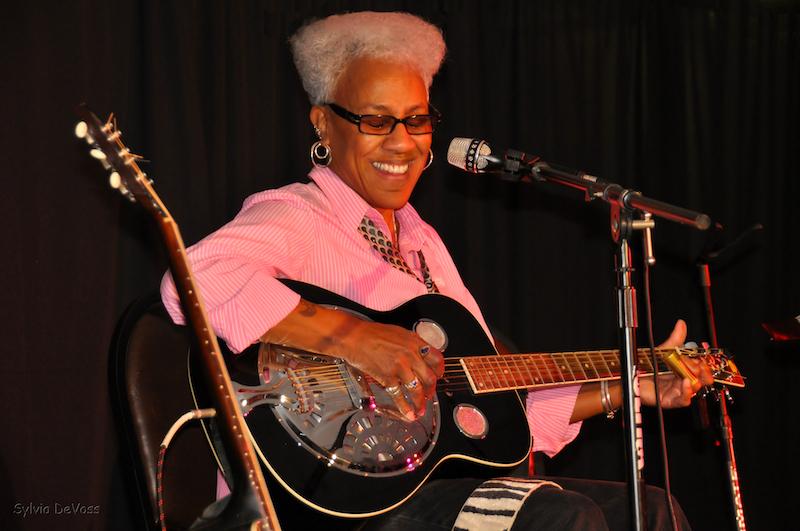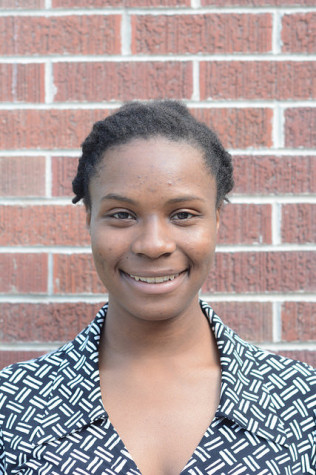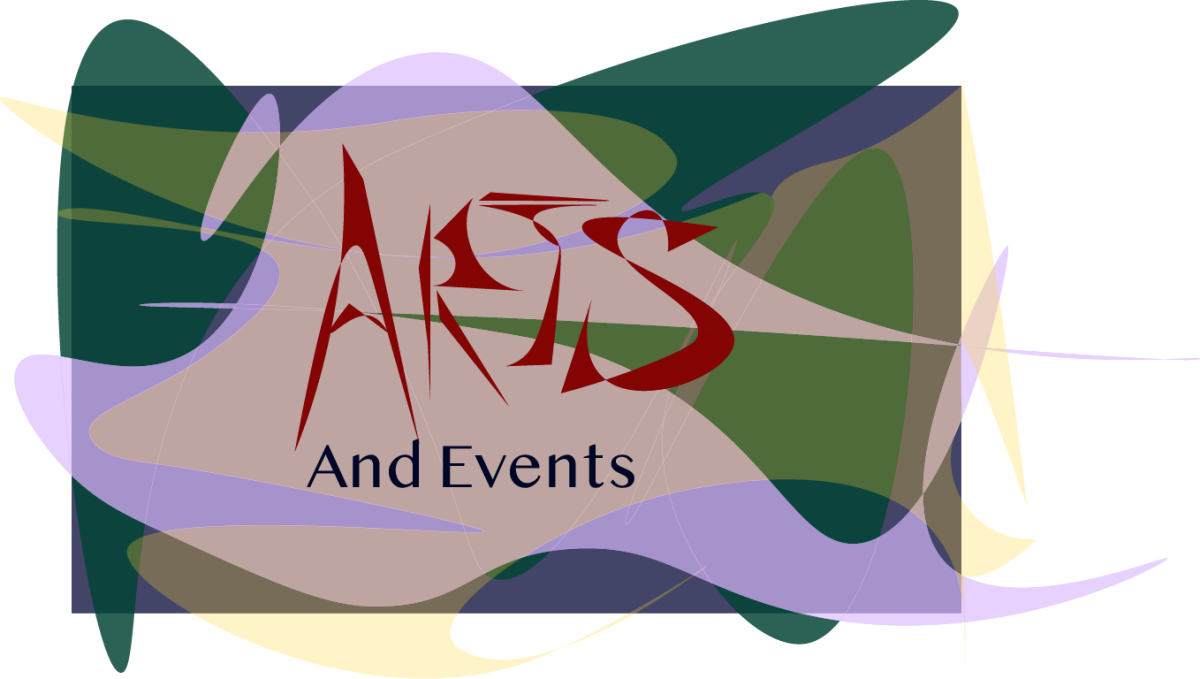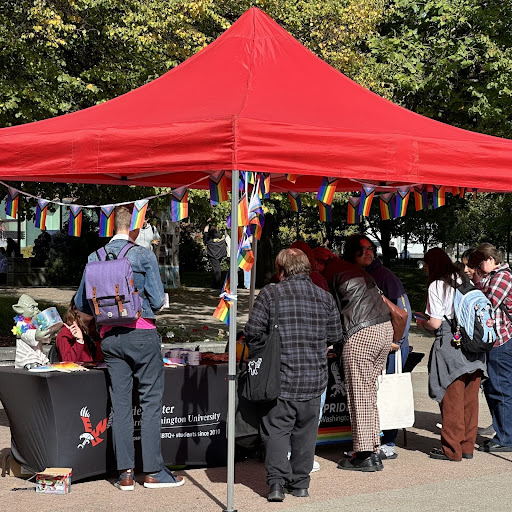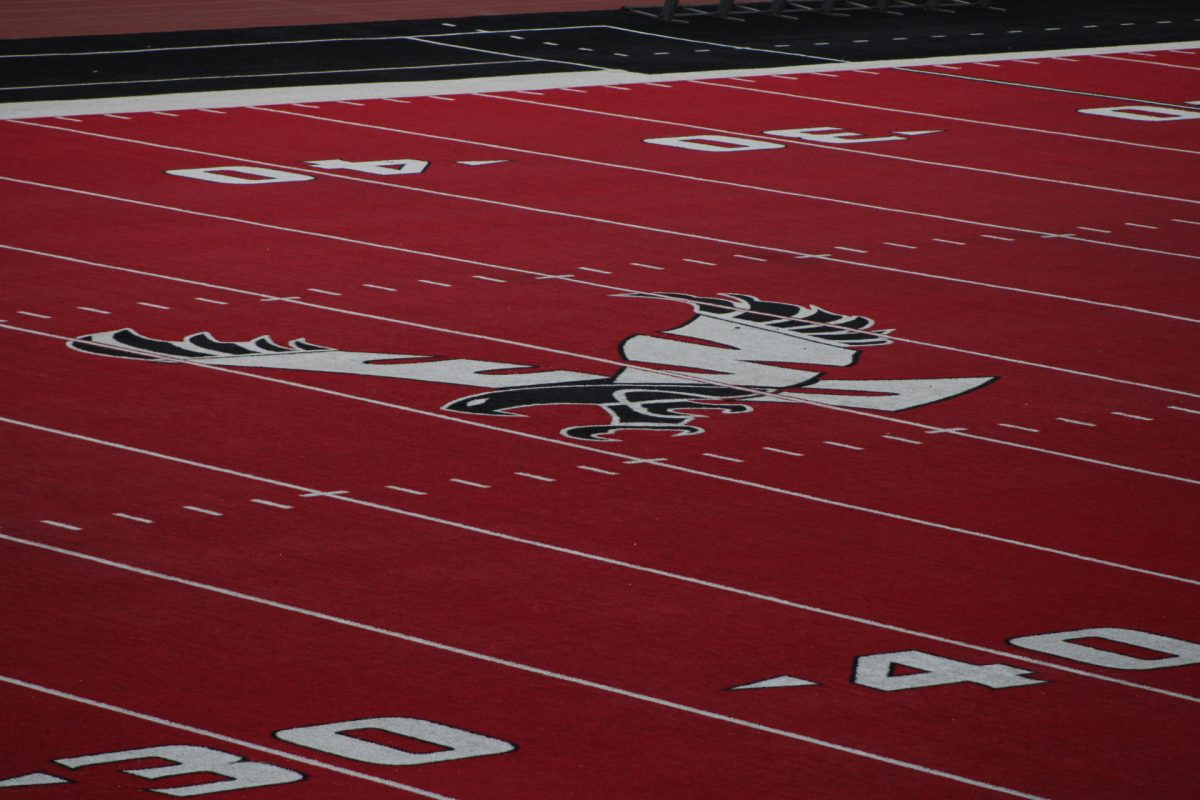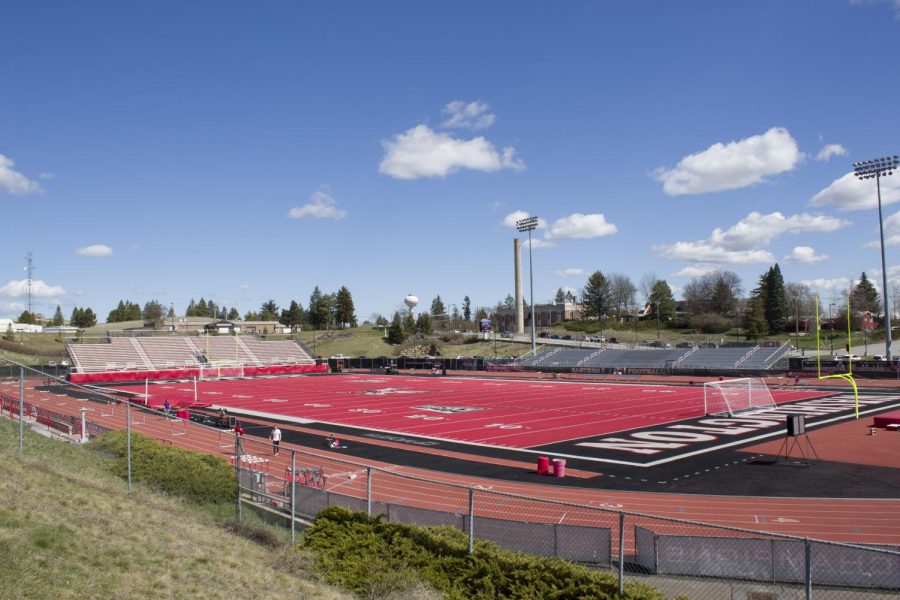Coming out day celebrated
Gaye Adegbalola and the Wild Rutz performing.
October 19, 2014
On Oct. 9, the EWU Pride Center sponsored several campus events to celebrate National Coming Out Day (NCOD), a day which honors the decision of LGBTQ individuals to “come out of the closet” and share their orientation and gender identity with family and friends.
Joining the EWU Pride Center in sponsorship were several university and local organizations: Eagle Entertainment, ASEWU, Student Activities Involvement and Leadership (SAIL), EWU Women’s Studies Center, Counseling and Psychological Services, Students United for LGBTQA Empowerment and the WSU Spokane Diversity Events Subcommittee.
The first event, a panel discussion with LGBTQ community members, took place in PUB 261. Panelists shared their coming-out experiences and fielded questions from the audience afterwards.
Following the panel was a lecture by Gaye Adegbalola, a blues artist and activist, and two NCOD celebration concerts featuring Gaye Adegbalola and the Wild Rutz. One took place in Showalter Auditorium, the other was the Phase 1 Building Auditorium of the Riverpoint Campus.
The significance of NCOD lies in the history of the LGBTQ civil rights movement, specifically the Second National March on Washington for Lesbian and Gay Rights.
The decade preceding the Second National March was a difficult one for the LGBTQ community. Harvey Milk, one of the United States’ first openly gay elected officials, was assassinated in his office in 1978. CDC statistics reveal the AIDS epidemic disproportionately ravaged the LGBTQ community in the 1980s. In 1986 the Supreme Court upheld a Georgia statute that criminalized sodomy in private between consenting adult males (Bowers v. Hardwick, 1986), a decision that would not be reversed until 2003 (Lawrence v. Texas, 2003).
These are just some of the events that inspired half a million people to march on the capitol on Oct. 11, 1987.
According to the Human Rights Campaign, a national organization that promotes equality for the LGBTQ community, “The momentum continued four months … as more than 100 lesbian, gay, bisexual and transgender activists from around the country gathered in Manassas, [Virginia].”
These activists decided the LGBTQ community needed a day to proactively celebrate the moments when LGBTQ people choose to openly acknowledge their orientation to their friends, families and communities. The activists chose the anniversary of the Second National March on Washington for Lesbian and Gay Rights to be this day, now commonly known as National Coming Out Day.
Twenty-seven years later, NCOD is celebrated all over the nation, including here at EWU.
“If I hadn’t [come out] I would still be hiding and living a lie,” said Fira Hedlund, adult education master’s student.
“For those who come out … it is a very important step towards self-acceptance, and self-acceptance is essential in order to live a happy, healthy and fulfilled life,” said Sandra Williams, EWU Pride Center coordinator, in an email interview.
“Coming out is also important to the larger community because it helps people understand that LGBTQ people are real people like their mothers, fathers, sisters, brother[s], friends, neighbors, teachers, church members, political representatives…and not some anonymous others. …[T]his helps reduce fear and increases understanding,” said Williams.
“I’ve mainly had to come out as third gender. I never saw being asexual or aromantic as something I had to hide,” said Hedlund, who went on to explain that many people lack the mental framework to comprehend genders other than male and female.
“When I was a kid … I took a hard look at the world and realized there were no representations of people who were not male and not female … so I assumed that if I told anyone what my gender was they would think I was insane.”
Hedlund would not come out to jhur mother until jhe was 23. “[S]he pretty much just looked me in the eye and said, “No, duh!” She always knew I was her “little queer kid,” she just didn’t have the words to [express] that.”
Williams emphasized that coming out is a highly personal decision.
“I do not believe that anybody has the right to decide for another person when the right time is for them to come out or to pressure them in any way…Because there is an assumption of heterosexuality in our society, coming out is something that happens over and over and over again, for example when you meet new people, get a new job, start a new class, get a new roommate [or] find a new doctor. … Some people are out in one part of their life and not in others.”
The EWU Pride Center, located in Showalter 105, and the Human Rights Campaign provide resources for people who are thinking of coming out, grappling with the aftermath of coming out or who have had a friend or family member come out to them.
List of Resources (hyperlinks for online posting, maybe graphic material for print):
“When a Friend ‘Comes Out’” http://sites.ewu.edu/pridecenter/files/2014/09/WhenAFriendComesOut.pdf
“A Resource Guide to Coming Out” http://sites.ewu.edu/pridecenter/files/2014/09/ComingOut_ResourceGuide_HRC1.pdf
“Coming Out as a Supporter”
http://www.hrc.org/resources/entry/straight-guide-to-lgbt-americans
“Transgender Visibility Guide”
http://www.hrc.org/resources/entry/transgender-visibility-guide



